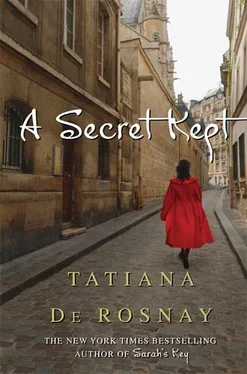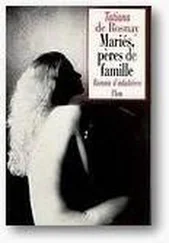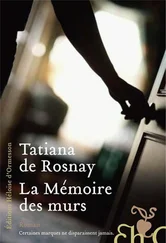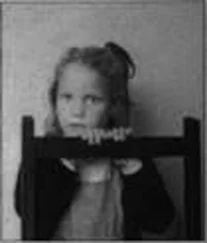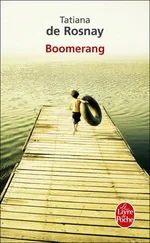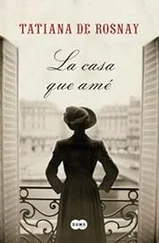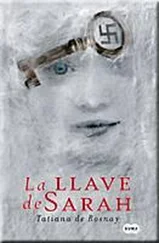I light a cigarette.
“You won’t be able to do that next year,” sneers the young man with a churlish smile. “Everybody will be going outside to smoke. Or not coming here at all. Bad business ahead. Real bad business. Might as well close up the place.”
He looks so worked up that I decide, in a cowardly fashion, not to venture into the conversation. Instead, I smile, nod my head, shrug, and plunge myself into the blithe study of my mobile phone.
I took up smoking again when Astrid told me she loved Serge. I had stopped for ten years. And in the flick of a lighter I became a smoker again. Everybody gave me hell about it. I didn’t care. Astrid, a true health freak, had been appalled. I still didn’t care. Smoking was the one thing no one could take away from me. It was the only part of my present life that gave me some kind of satisfaction. I knew I was a bad example for my children, especially at Arno’s and Margaux’s fragile, impressionable ages, when smoking is considered a risqué, hip thing to do. The apartment at the rue Froidevaux smells of stale smoke. When I get home, that’s what greets me. And the view over the cemetery. Looking over death. Of course, I can’t complain, my deceased neighbors are a prestigious bunch: Baudelaire, de Maupassant, Beckett, Sartre, de Beauvoir. But I soon learn to look away from the living-room window. Or I only look out at night, when the austere crucifixes and stone monuments are no longer visible, when the long stretch to the Tour Montparnasse is just a mysterious black space full of nothingness.
I had spent time trying to make that apartment look and feel like home. In vain. I had pilfered Astrid’s photo albums, ruthlessly tearing out my favorite photos of the children, of us, plastering them all over my walls. Arno at birth in my bewildered arms, Margaux in her first dress, Lucas triumphant on the top of the Eiffel Tower, brandishing a sticky lollypop. Ski vacations, summer vacations, Loire châteaux visits, birthdays, school plays, Christmases: an endless, desperate exhibition of what our happy family once was.
Despite the photos, despite the colorful curtains (Mélanie had helped choose those), the cheerful kitchen, the comfortable Habitat sofas, the clever lighting, there is something heart-wrenchingly empty about the place. It seems to come to life only when the kids turn up on their allotted weekends. I still wake up in the new bed, scratch my head, and wonder where I am. I can’t stand going back to Malakoff, being confronted with Astrid and her new life in our old house. Why are people so attached to houses? Why does it hurt so much to let a house go?
We bought that house together, twelve years ago. It was an unfashionable area then, considered unglamorous and working class, and our move to that “grotty little suburb” south of Paris had sprouted raised eyebrows. And there had been so much to be done. The high and narrow pavillon de banlieue was crumbling, damp and run-down. That was why it was cheap. We took it on as a challenge. We loved every minute of it, even the setbacks, the problems with the bank, with a fellow architect, with the plumber, the mason, the carpenter. We worked on it day in, day out. And it finally became perfect. Malakoff, our little paradis. Our envious Parisian friends realized how close it was to the city, how easy it was to get to, just beyond the Porte de Vanves. And we even had a garden-who can boast of a garden in Paris?-which meant we had our meals outside in the summer, despite the muffled roar of the nearby périphérique that we soon got used to. A garden, which I tenderly looked after, and a dog, a clumsy old Labrador who still couldn’t understand why I had moved out and who this new guy in Astrid’s bed was. Good old Titus.
My heart still aches for that house. The winters, and the cozy fireplace. The big living room, shabby with the wear and tear of three children and the dog. Lucas’s drawings. Astrid’s incense sticks that gave me headaches. Margaux’s homework. Arno’s size twelve sneakers. The dark red sofa that had seen better days but remained comfortable enough to sleep on. The sagging armchairs that embraced you like old friends.
Our home. The day I had to leave it. The day I stood on the doorstep and turned around and looked at it for the last time. The last time as my home. The children weren’t there. Astrid watched me, her eyes wistful. You’ll be okay, Antoine. The kids will come and see you every other weekend. You’ll see, it’ll be fine. And I had nodded, not wanting her to see tears welling up. She had said, Take what you want. Take what you think is yours. I had started to fill up cardboard boxes with all my junk, savagely, angrily; then I had slowed down. I didn’t want any memories, except the photos. I didn’t want anything except the photos. I didn’t want anything from this house except for her to love me again.
I used to have my office on the top floor. The ideal office. Space, light, and silence. I had planned it myself. When I was up there, overlooking the reddish roofs and the gray strip of the ring road always cluttered by traffic, I felt like Leo DiCaprio when he gloats, “I’m the king of the world!” on the doomed Titanic’s deck, arms outstretched to the horizon. My doomed office. It was my lair, my den. In the good old days, Astrid used to creep up when the children were asleep, and we’d make love on the carpet, listening to Cat Stevens sing “Sad Lisa. Lisa Lisa, sad Lisa Lisa.” Serge has his office up there now, I guess. I don’t want to think about what they do on the carpet.
As I sit there in that dingy café, waiting for my family to turn up, listening to a corny song by Michel Sardou, I wonder if my father wasn’t right after all.
I never fought for her. I never kicked up a fuss. I never let all hell loose. I let her go. I was meek and well-behaved, like the little boy I used to be. The one with the combed-back hair and the navy blue jacket. The one who said s’il vous plaît, merci, and pardon.
At last I glimpse the familiar Audi, coated with dust. I watch my family get out of the car. They don’t know I’m there, they can’t see me yet. I leave the café and hide behind a large tree near the parking lot. My heart swells. I haven’t seen them for a while. Arno’s hair is blonder, bleached by the sun. He wears it down to his shoulders. I see he is trying to grow a straggly goatee, which oddly enough suits him. Margaux has a bandanna around her head. She has filled out, she is no longer so skinny. She walks clumsily, not comfortable with herself. Lucas is the one who surprises me the most. The plump kid is now all arms and legs. I can see the future teen inside him struggling to get out, like the Incredible Hulk.
I don’t want to look at Astrid right away, but I can’t hold out much longer. She is wearing a long, faded jean dress that I love, buttoned up in the front and close-fitting. Her blond hair, a little more silvery I notice, is tied back. She looks wan. But still so beautiful. Serge is not there. I breathe a sigh of relief.
I watch them leave the parking lot and head to the hospital. I make my appearance. Lucas howls and flings himself on me, his arms and legs wrapping themselves around me. Arno grabs my head and kisses me on the forehead. He is definitely taller than I am now. Margaux stands apart, on one leg, like a flamingo, then comes forward and buries her head in my shoulder. I discern that under the bandanna her hair is dyed bright orange. I recoil, but say nothing.
I save Astrid for last. I wait till the children have had their fill of me, and I reach out for her and hug her with a sort of feverish hunger she probably mistakes for anguish concerning my sister. It is unbelievably good holding her close again. Her scent, her softness, the velvet touch of her naked arms make me reel. She doesn’t push me away. She hugs me back, hard. I want to kiss her and nearly do. Then I remember they haven’t come here for me. They’ve come for Mel.
Читать дальше
